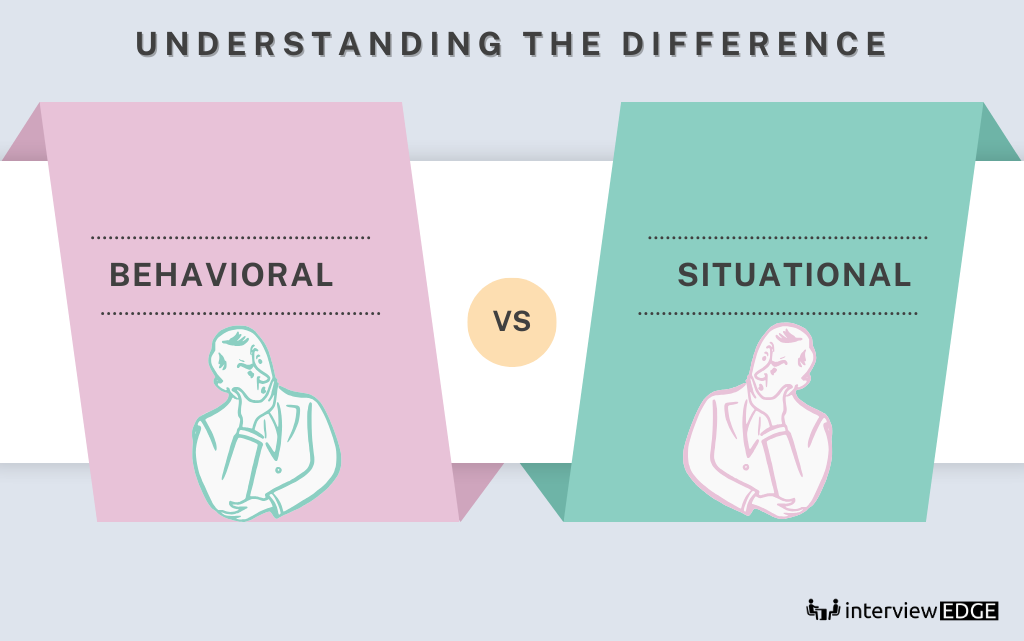
Interviews can be daunting, but knowing what to expect can make a huge difference. If you’ve ever faced a challenging question that caught you off guard, you’re not alone. Interviewers use different question types to assess your problem-solving skills, decision-making ability, and overall suitability for administrative roles. Two of the most common types are behavioral and situational questions.
While they may seem similar, these questions serve different purposes. One digs into your past experiences, while the other tests how you might handle future governance challenges. Understanding their differences—and how to answer them effectively—can help you leave a strong impression on the panel.
What Are Behavioral Questions?
Behavioral questions focus on real experiences from your past. The idea? If you’ve handled a situation well before, you’re likely to handle it well again in an administrative role.
Key Characteristics:
- Based on actual situations you’ve encountered.
- Require you to explain what you did, how you did it, and what happened as a result.
- Typically begin with:
- “Can you describe a time when…”
- “Tell me about a situation where…”
- “Have you ever faced a challenge where…”
Examples of Behavioral Questions:
- Can you describe a time when you successfully managed a public grievance?
- Tell us about a situation where you had to make a tough ethical decision.
- Have you ever faced resistance while implementing a policy? How did you handle it?
How to Answer Behavioral Questions
The STAR Method is a structured approach that helps articulate your responses clearly. Learn how to use it effectively in this guide.
For additional frameworks like CAR and SOAR, check out this detailed breakdown.
What Are Situational Questions?
Situational questions present hypothetical scenarios and ask how you’d handle them. These questions test your ability to think on your feet, make governance-related decisions, and handle complex administrative challenges.
Key Characteristics:
- Focus on imagined or potential situations.
- Require logical thinking and decision-making.
- Usually start with:
- “What would you do if…”
- “How would you handle…”
- “Imagine a situation where…”
Examples of Situational Questions:
- How would you handle a situation where public protests erupt against a government policy?
- What would you do if you had to mediate between two conflicting administrative departments?
- Imagine you are assigned to a district facing severe corruption issues. How would you address it?
How to Answer Situational Questions
A structured approach ensures clarity in your response. The 5 Whys technique and other competency-based methods can help you craft compelling answers. Learn more about them here.
Behavioral vs. Situational Questions: What’s the Difference?
| Aspect | Behavioral Questions | Situational Questions |
|---|---|---|
| Focus | Past experiences and actions | Hypothetical or future scenarios |
| Purpose | Evaluates past behavior to predict future performance | Tests decision-making, problem-solving, and adaptability |
| Nature | Reflective (What you did and learned) | Forward-thinking (What you would do) |
| Example Starter | “Tell me about a time when…” | “What would you do if…” |
Why Do Interviewers Ask These Questions?
Behavioral Questions:
- Reveal your leadership style, ethics, and ability to manage public administration challenges.
- Give the panel insights into how you’ve handled difficult situations in the past.
Situational Questions:
- Test your ability to think critically, adapt, and make governance-related decisions.
- Show whether you align with the values of public service and administrative efficiency.
Final Tips for Acing These Questions
- Be Honest: Authenticity matters—avoid fabricated responses.
- Practice Mock Interviews: Practicing governance-related scenarios builds confidence.
- Align with Core Administrative Values: Emphasize integrity, impartiality, and efficiency in governance.
- Take a Moment Before Answering: Structured responses are better than rushed ones.
- Learn from Past Officers: Reading case studies and engaging in discussions can refine your approach.
Conclusion
Both behavioral and situational questions help the Interview panel assess how you think and react in different administrative contexts. While behavioral questions focus on your past, situational questions challenge you to think critically about future governance scenarios.
By preparing structured responses and using effective answering techniques, you can confidently handle any interview question. Remember, it’s not just about giving the “right” answer—it’s about demonstrating your suitability for public service through honesty, clarity, and confidence.
